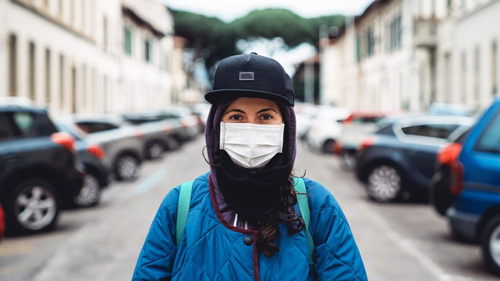Anxiety disorders are the most common mental illness in the United States, affecting 40 million adults, according to the Anxiety and Depression Association of America.
Getting back into a social routine after isolating may bring about anxiety.
Socializing at your own pace and practicing self-care can help ease social anxiety.
Since your social calendar has been blank for the last few months, filling it back up can feel liberating — but it can also cause anxiety.
“The change from having a highly social work and personal life to nothing at all can be really detrimental to a person’s mental health, and may cause many people who are normally extroverted to feel like they are becoming introverted and not wanting to mix with others,” Jana Abelovska, medical advisor for Click Pharmacy, told Healthline.
Emily Anhalt, PsyD, founder of Coa, agrees, noting that isolation is emotionally draining and can feed into social anxiety.
“We are not gathering experiences that disprove our worries; there’s no gradual exposure [to our worries]. Normally when you are being social in a regular way, you are having some of your worries disproven. You’re getting used to them. You have a chance to try different things and see what helps with your worry, but now that we are all on our own, jumping back into the unknown poses its own set of anxiety,” .
As you begin to socialize in person more, the following simple tips can help put your anxiety at ease.
For those who live with social anxiety, Dr. Allie R. Shapiro, psychiatrist with Community Psychiatry, says to slowly enter into a social life.
“This will help them to ease into situations that were previously uncomfortable. As quarantine ends, the auto-avoidance will also end, necessitating their introduction back into situations they deeply fear. That’s not a leap anyone should take all at once,”
Start by connecting with those in your closest inner circle.
“That circle is your comfort space, and people you feel most like yourself with and can be honest with and who you trust,” Anhalt said.
When you’re ready, she suggests reaching out to people you enjoy being with but may feel nervous around and need warming up to. Eventually, expand your circle to include people and situations that make you anxious.
“[The idea is to] give yourself a little taste of something that makes you anxious and then wait for the anxiety to calm down. Then increase your exposure a little more and wait for the anxiety to come down,” Anhalt said.
If you’re not ready to see people face-to-face, Abelovska suggests setting a goal to talk with a different person each day over the phone or via video chat.










